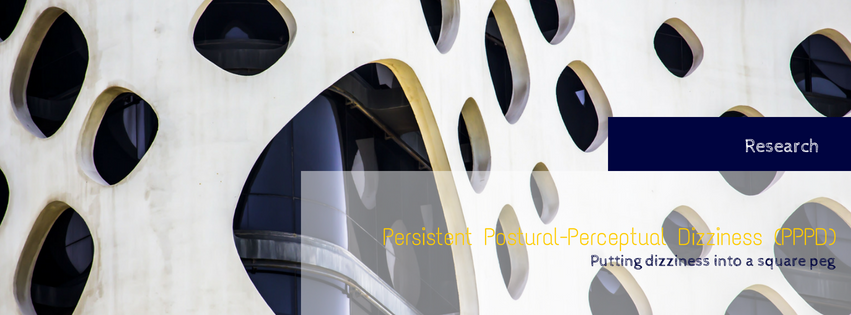
Patients with chronic dizziness are often diagnosed with a functional dizziness syndrome such as PPPD, previously known as Phobic Postural Vertigo (PVD).
Persistent Postural-Perceptual Dizziness (PPPD)
PPPD is based on a condition called phobic postural vertigo (PPV) first described in the 1980’s by Brandt and Dieterich, two eminent German neurologists.
The primary symptoms of PPPD are persistent sensations of rocking or swaying, unsteadiness and/or dizziness without vertigo lasting for three months or more. Factors that may provoke PPPD symptoms include sudden movements, being upright and exposure to certain stimuli. Once recognised, PPPD may be managed.
Unfortunately, the term PPPD has become quite popular and patients with PPPD are often referred for Vestibular Rehabilitation to ameliorate their symptoms.
Professor Margie Sharpe says, “Many therapists are trying to fit square pegs in round holes and it’s really not in the best interests of patient care”.
Moreover, the findings by Popp et al., 2018 showed the constellation of symptoms of PPPD (PVD) patients were NOT due to aberrant processing in the cortical visual, visual motion or vestibular regions.
Following is a link to an excellent paper which Prof Margie Sharpe has recommended for reading.
Cortical alterations in phobic postural vertigo — a multimodal imaging approach
Popp – 2018
Annals of Clinical and Translational Neurology
Wiley Online LibraryObjective: Functional dizziness syndromes are among the most common diagnoses made in patients with chronic dizziness, but their underlying neural characteristics are largely unknown. The aim of this neuroimaging study was to analyze the disease-specific brain changes in patients with phobic postural vertigo (PPV).
Interpretation: Our findings agree with some of the typical characteristics of functional dizziness syndromes, for example, excessive self-awareness, anxious appraisal, and obsessive controlling of posture. This first evidence indicates that the disease-specific mechanisms underlying PPV are related to networks involved in mood regulation, fear gen-
eralization, interoception, and cognitive control. They do not seem to be the result of aberrant processing in cortical visual, visual motion, or vestibular regions.https://onlinelibrary.wiley.com/doi/epdf/10.1002/acn3.570
If you are worried about any symptoms of dizziness please contact the Centre.
